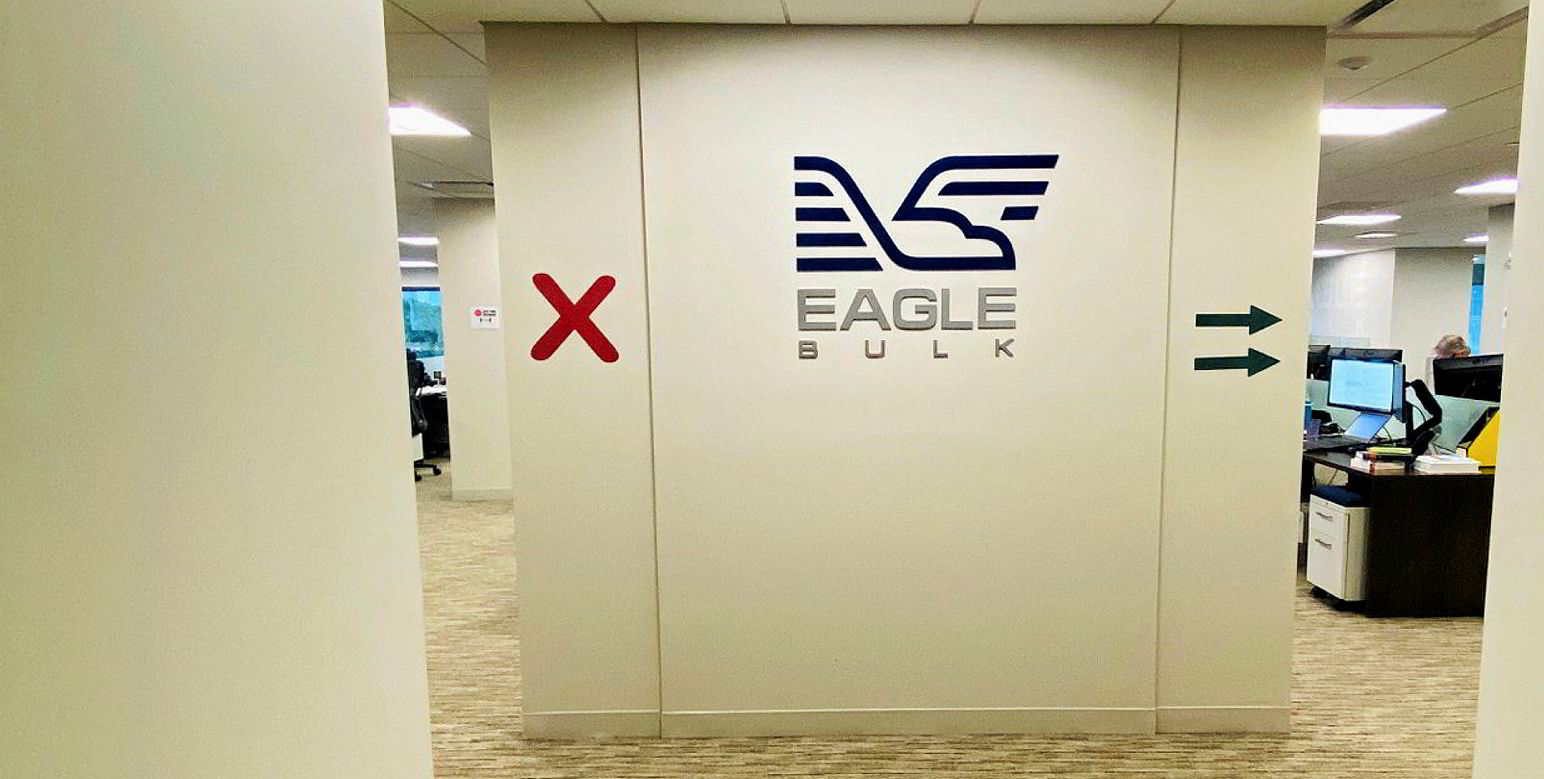Eagle Bulk Shipping saw shares do what they often do after a reverse stock split on Tuesday.
The stock price fell.
But the Stamford-based bulker owner remains confident it will reap benefits of the tack in the longer term.
New York-listed Eagle Bulk is the latest listed owner to carry out a reverse split – issuing one new share for each seven of the old – because it wanted to, not because it had to.
Shipping has seen a raft of public companies use the tactic when their shares have fallen below $1 and they are being threatened with delisting by the Nasdaq or New York Stock Exchange based on minimum price benchmark.
That is not the case with Eagle Bulk, which had closed at $2.61 on Nasdaq Monday after announcing it would proceed with the plan. It had been approved by shareholders in June.
The company follows in the footsteps of owners like the Scorpio Group's two New York-listed spin-offs. Both were also trading well above the minimum bid threshold of $1 when Scorpio Tankers executed its reverse split in 2019 and Scorpio Bulkers did the same in April.
As veteran investment banker David Frischkorn explained in a 2019 interview with TradeWinds, many owners trading below $5 per share ought to consider what Eagle Bulk, and Scorpio before it, have done.
While it’s not a matter of facing delisting, shipowners whose shares are trading below $5 present certain obstacles for investors who might want to own their shares.
A reverse split sees a company reduce the number of shares outstanding while the remaining shares increase in price by a corresponding amount. It does not alter overall market capitalisation.
Under rules of the US Federal Reserve System, when a stock trades above $5, an investor can establish a margin account and borrow against the value of the investment of that stock, up to a 50% maximum.
The account can be used to buy more stocks or for whatever purpose the investors need the funds.
However, stocks trading below $5, are not “marginable” because of the greater perceived risk associated with them, and thus present investors with yet another reason to avoid them.
Such stocks may also be more difficult for brokers to recommend to their clients.
Scorpio Group president Robert Bugbee credited Frischkorn’s counsel in his companies’ decisions, noting also that some institutional investors can’t touch stocks below $5 or even $10.

“The sweet spot in the stock price is between $10 and $20, as it is for many stocks,” Bugbee said last year.
Eagle Bulk found that sweet spot, as the stock opened at $17.65 following the split, down from a previous close of $18.27 when adjusted for share count.
The stock dropped further in Tuesday trading and closed down nearly 5%, compared to gains of 1% by Scorpio Bulkers, a flat day for Diana Shipping, a 1% loss for Star Bulk and a 2% loss for Genco Shipping & Trading.
“It’s not a huge concern, but usually these moves are not well received initially – for example, most share prices fall in the first few days following a reverse split,” said Jefferies analyst Randy Giveans in a message to TradeWinds on Tuesday.
There may be various reasons for an initial drop. One is that investors confuse the move with the actions of some penny stocks that are desperate to avoid delisting, sometimes pairing the splits with a series of dilutive equity issuances.
Frischkorn – now retired but a veteran of Jefferies, Dahlman Rose and Seaport Global Securities – cited other fears.
“Some [owners] are afraid that the reverse split happens and people can't do the math and the stock will slip down where it was. That’s a fear and it's been a fear for 20 years,” he said.
"But it’s a needless fear. That doesn't need to happen.”
If there is a more legitimate concern surrounding Eagle Bulk, it’s that the stock did not trade with great volume to begin with, even with the higher shares count. A reverse split only curtails liquidity.
Noble Capital Markets analyst Poe Fratt said in a client note that the share count drops from 77.1m to 11m. This is compounded by the fact that two insider financial groups, Oaktree Capital Management and Golden Tree Asset Management, together control 56% of shares.
Eagle Bulk traded only about 400,000 shares a day over the last three months, and traded just 64,000 Tuesday after the split.







